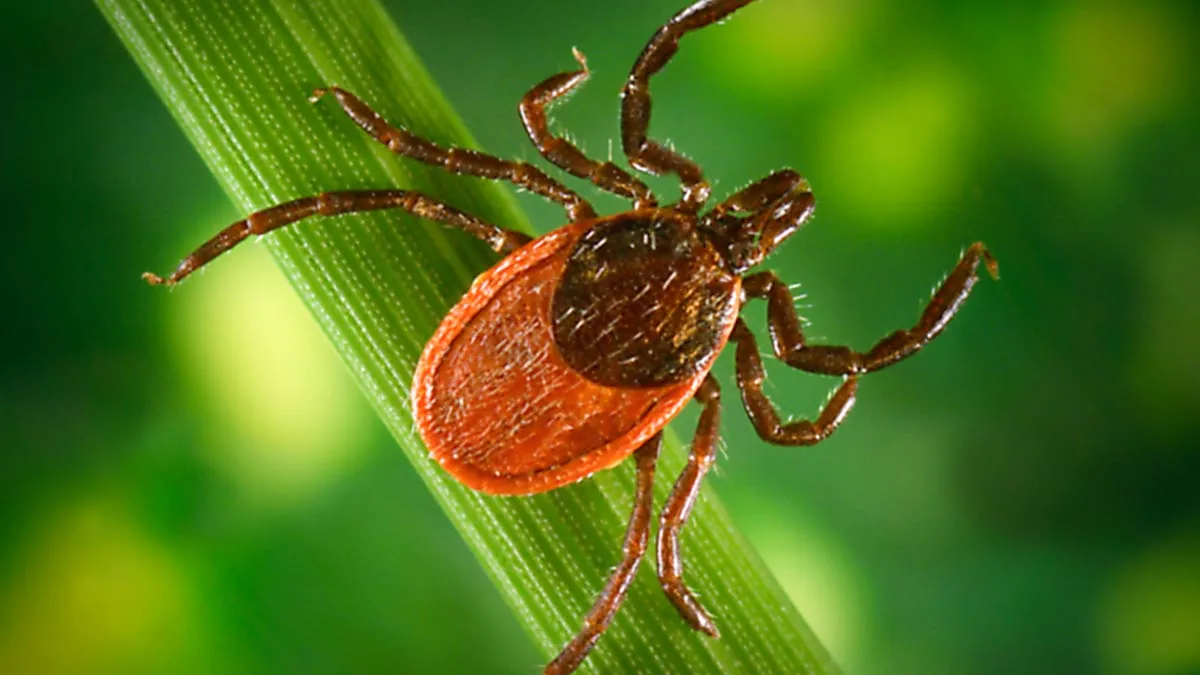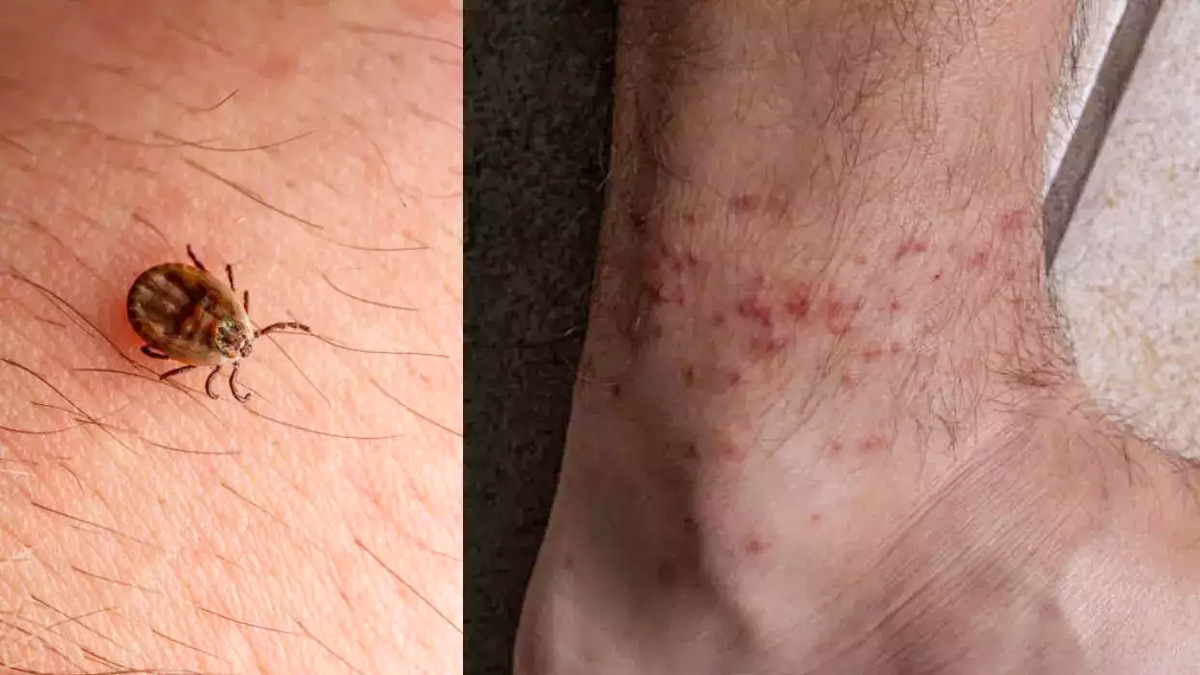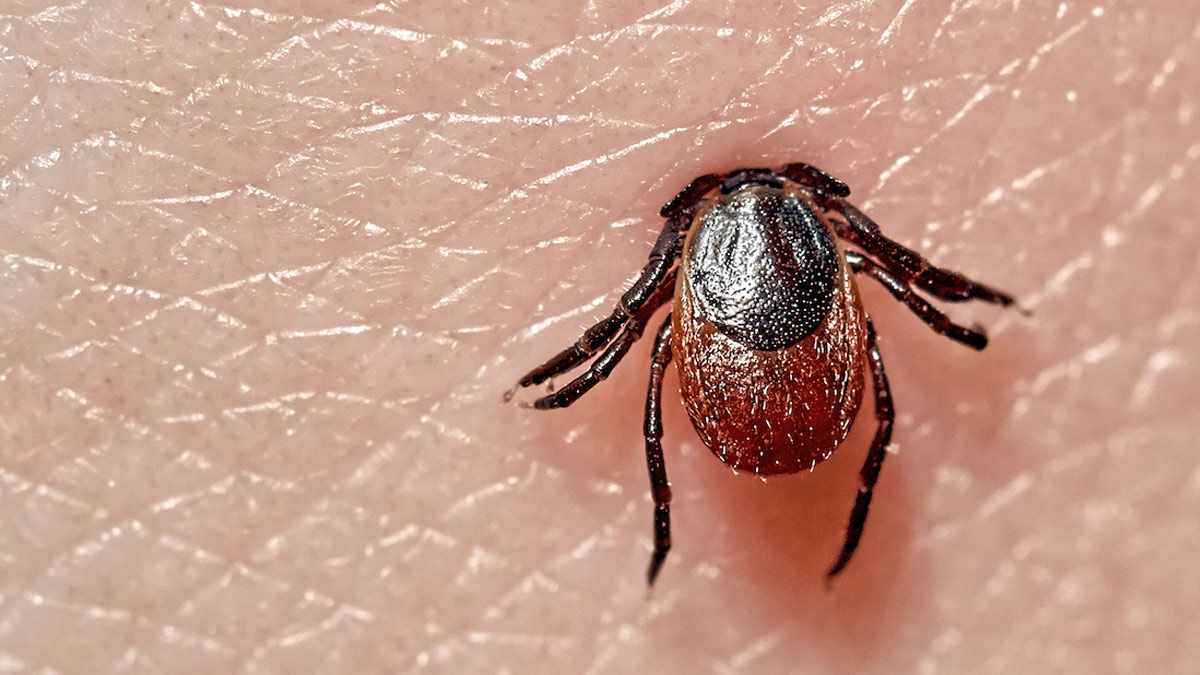
A recent study published in Emerging Infectious Diseases has revealed a concerning development in tick-borne allergies. The Centers for Disease Control and Prevention (CDC), in collaboration with the Maine CDC and other institutions, has confirmed that black-legged ticks (Ixodes scapularis) may be responsible for triggering Alpha-Gal Syndrome (AGS), a condition that causes severe allergic reactions to red meat.
Table of Content:-
Understanding Alpha-Gal Syndrome (AGS)
Alpha-Gal Syndrome, commonly referred to as a “red meat allergy” or “tick bite meat allergy,” is a hypersensitive reaction to galactose-α-1,3-galactose (α-gal), a carbohydrate found in mammalian meat. Individuals with AGS experience symptoms ranging from mild to severe after consuming beef, pork, lamb, or other red meat products.

Common Symptoms of AGS:
- Skin reactions like rashes or hives
- Gastrointestinal issues including nausea, vomiting, and diarrhoea
- Respiratory distress or difficulty breathing
- A drop in blood pressure, dizziness, or fainting
- Severe cases can result in anaphylaxis, a life-threatening allergic reaction
AGS has traditionally been linked to bites from the lone star tick (Amblyomma americanum), which is primarily found in the southeastern United States. However, the latest research suggests that other tick species, including the black-legged tick, may also be responsible for triggering this allergy.
Study Findings: Black-Legged Ticks and AGS
The study focused on a 45-year-old woman from Maine who exhibited symptoms of AGS following a bite from a black-legged tick. She reported gastrointestinal distress after consuming red meat, despite having no prior history of food allergies. Her symptoms worsened over time, prompting medical evaluation.

A series of tests, including a specific IgE test for α-gal antibodies, confirmed that she had developed AGS. The fact that her symptoms were linked to a bite from a black-legged tick rather than the commonly associated lone star tick prompted further investigation.
Upon reviewing patient records from 2014 to 2023, researchers identified 23 cases in Maine where individuals exhibited AGS symptoms without known exposure to lone star ticks. This suggests that black-legged ticks, which are commonly associated with Lyme disease, could be a previously unrecognized source of AGS.
Also Read: Delhi-NCR Woman Dies Of Rabies After Consuming Milk From Infected Cow
The Implications of This Discovery
The findings highlight the need for greater awareness and surveillance of tick-borne illnesses beyond Lyme disease. Black-legged ticks are widespread across the northeastern, midwestern, and southeastern United States, potentially increasing the risk of AGS in these regions.
The CDC has emphasized the importance of monitoring tick bites and symptoms, particularly in areas where black-legged ticks are prevalent. Health professionals are now encouraged to consider AGS as a possible diagnosis when patients report allergic reactions to red meat, even if they have not been bitten by a lone star tick.

Preventing Tick Bites and Reducing Risk
Given the expanding risk of AGS, it is crucial to take preventive measures to avoid tick bites. Here are some recommended strategies:
- Wear Protective Clothing: Long sleeves, pants, and light-coloured clothing can help prevent tick attachment.
- Use Insect Repellent: Products containing DEET or permethrin are effective at repelling ticks.
- Perform Tick Checks: Regularly check for ticks after outdoor activities, especially in wooded or grassy areas.
- Shower After Outdoor Activities: Washing off any unattached ticks can prevent bites.
- Remove Ticks Promptly: If you find a tick attached, use fine-tipped tweezers to remove it as soon as possible.
Future Research and Public Awareness
The discovery that black-legged ticks may contribute to AGS has prompted the CDC to enhance its research and public health efforts. Further studies are needed to determine the full extent of the risk posed by different tick species and their potential role in triggering AGS.
Public awareness campaigns are also essential to educate individuals about the risks associated with tick bites and the symptoms of AGS. Early detection and proper medical guidance can help those affected manage their condition effectively.
Bottomline
The confirmation that black-legged ticks can trigger AGS significantly broadens the potential risk of developing this red meat allergy. As tick populations continue to spread, it is more important than ever to take preventative measures and stay informed about emerging tick-borne diseases. Healthcare providers and individuals alike must be vigilant about tick bites and their potential consequences to safeguard public health.
Also watch this video
How we keep this article up to date:
We work with experts and keep a close eye on the latest in health and wellness. Whenever there is a new research or helpful information, we update our articles with accurate and useful advice.
Current Version